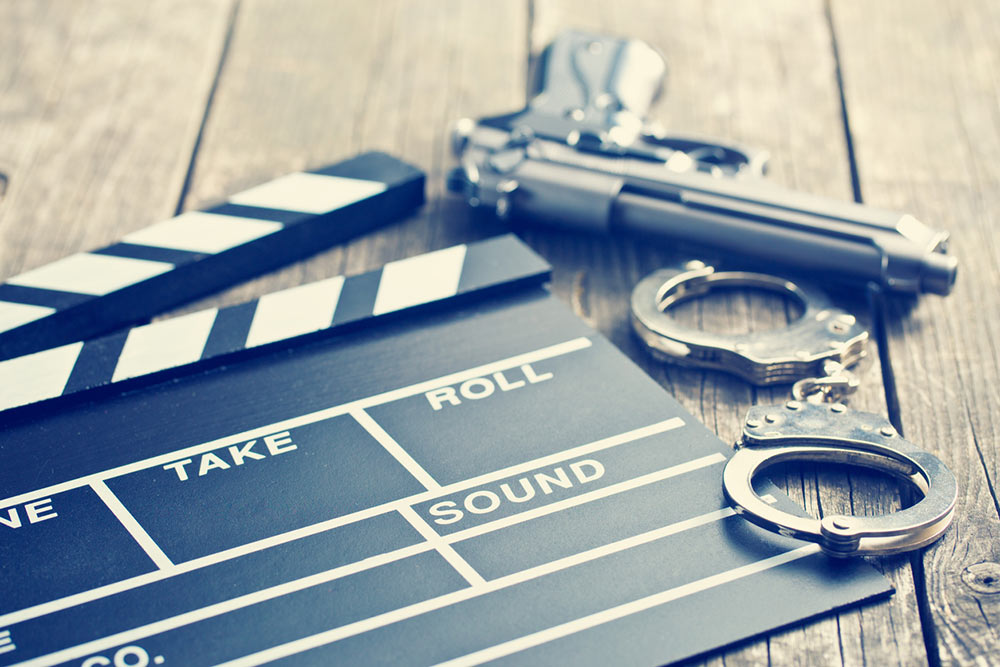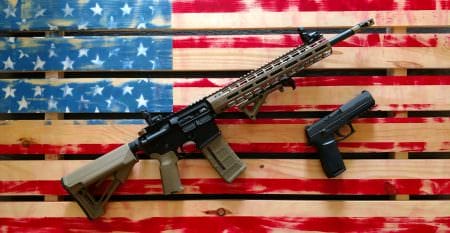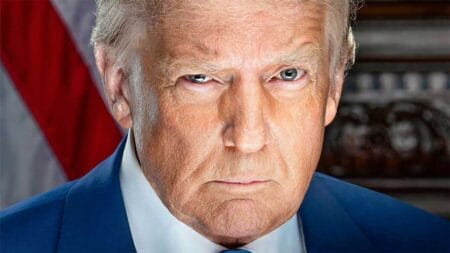Hollywood legend Mel Gibson has found himself at the center of a heated Second Amendment debate, as his fight to restore his gun rights has ignited controversy within the Trump Department of Justice (DOJ).
The Oscar-winning actor, best known for Braveheart and Lethal Weapon, lost his firearm privileges after a 2011 misdemeanor domestic violence conviction. Now, under President Donald Trump’s administration, efforts to restore his rights have become a political flashpoint, drawing criticism from anti-gun activists while fueling the broader discussion about the rights of non-violent felons and those with past convictions.
A Justice Department Shakeup Over Gun Rights
The debate intensified when former DOJ Pardon Attorney Elizabeth Oyer claimed she was fired for refusing to recommend Gibson’s gun rights restoration. Oyer, a Biden-era appointee, [her office is the one that oversaw Hunter Biden being pardoned for his gun crimes.] alleges that senior Trump administration officials pressured her to include Gibson in a list of individuals slated for firearm rights reinstatement.
She refused, citing concerns about his 2011 domestic violence charge, and was subsequently dismissed.
DOJ officials, however, have resisted Oyer’s claims, stating that her termination was unrelated to the Gibson case. Nevertheless, left-leaning media outlets have amplified her allegations, portraying the issue as another instance of political favoritism.
Yet, for many pro-Second Amendment advocates, the real story isn’t about Hollywood politics—it’s about the broader issue of restoring constitutional rights to those who have served their time.
The Case for Second Chances
Federal law prohibits individuals convicted of felonies and certain domestic violence misdemeanors from owning firearms. The 1996 Lautenberg Amendment [named after one of America’s most anti-gun Senators in history and now deceased, Frank Lautenberg] permanently bars those with domestic violence convictions from possessing guns, even if the charge was a misdemeanor and even if decades have passed without further incidents. This has long been a contentious issue, with gun rights advocates arguing that blanket bans are unconstitutional and prevent reformed individuals from protecting themselves and their families.
Recent court cases, such as Range v. Garland and United States v. Duarte, have challenged these restrictions, particularly for non-violent offenders. The Supreme Court’s Rahimi decision reaffirmed that firearm bans should only apply to individuals who pose a clear and present danger. Many argue that Gibson, whose conviction was more than a decade ago and involved no firearm, should not be permanently stripped of his rights.
A Political Battle Disguised as a Legal One
The attempt to restore Gibson’s gun rights has turned into a political battle, with Trump’s opponents using the case to attack the administration’s approach to justice reform. The actor’s connection to Trump—who recently named him a “Special Ambassador to Hollywood”—has only fueled the fire. Critics argue that Gibson’s case is receiving preferential treatment, while conservatives point out that the DOJ’s resistance to restoring his rights highlights the broader problem with how gun laws unfairly target certain groups.
Gun rights supporters emphasize that if felons can have their voting rights restored, they should also be able to regain their right to bear arms. The hypocrisy of allowing individuals to shape public policy at the ballot box while denying them the means to protect themselves is a growing concern among Second Amendment advocates.
The Bigger Picture: A Fight for All Americans
Regardless of one’s opinion on Gibson himself, his case has become a test for how far courts and lawmakers are willing to go in recognizing that gun rights are fundamental and not privileges to be arbitrarily revoked. The battle over felon firearm rights is far from over, and Gibson’s case may serve as a precedent for thousands of others seeking to reclaim their constitutional protections.
As legal battles over gun rights continue, one thing is clear: the fight for the Second Amendment isn’t just about celebrities—it’s about ensuring that all Americans, regardless of past mistakes, are given a fair chance to exercise their rights.
Challenging the Status Quo: The Case for Allowing Convicted Felons to Exercise 2nd Amendment Rights
Felons Can Vote, So Why Can’t They Own Guns? The Hypocrisy of Denying 2nd Amendment Rights






The Lautenberg Amendment needs to be repealed, just as nature thankfully repealed Frank Lautenberg.
Frank Lautenburg was a big gun hater and
gun banner, just as bad as Ted Kennedy
Why idiots keep voting for him is unbelievable.
Frank knew most married people will get into arguments. So he conniving used this bill to claim it will” save” at least one woman’s life by banning their husbands. from ever owning a gun again.
Almost at the end the remark is made: We are being very careful right now on how we can influence an agenda right now. Now you know why she is no longer employed, she’s an inside the beltway liberal still try to push her own agenda!
From the article,
“The Oscar-winning actor, best known for Braveheart and Lethal Weapon, lost his firearm privileges after a 2011 misdemeanor domestic violence conviction.”
I ask, what are these “firearm privileges”? It was my understanding we have the RIGHT TO KEEP AND BEAR ARMS…
The simple possession of firearms should not be illegal for anyone. The fact that free unconfined citizens are being subjugated into the underclass of firearm-prohibited persons has negated the protections of the 2nd Amendment.
Where’s this “gun privilege” stuff coming from? I don’t see the word “privilege” in the following,
“Amendment IIA well regulated Militia, being necessary to the security of a free State, the right of the people to keep and bear Arms, shall not be infringed.”
If one is deemed by a court, via due process to be too dangerous to be entrusted with his basic human rights, then he should be in one of two places, prison, or a mental institution. Since Mel Gibson is NOT in either prison or a mental institution, he should legally be able to buy, own, use, bear, any gun he wants… “Shall not be infringed”… As a side note, in some of the movies he’s done post 2011, he’s used guns. Were the guns he used then airsoft guns, so as to prevent legal problems? I’ve read of rappers… Read more »
And as far as Trump firing the government lawyer, so what?
What good’s a commander in chief, if he can’t pick and choose who’s going to work under him?
After all a DOJ lawyer is not elected by the people. Nor is it a position which requires an act of congress, such as confirming a federal judge.
So, again, so what?